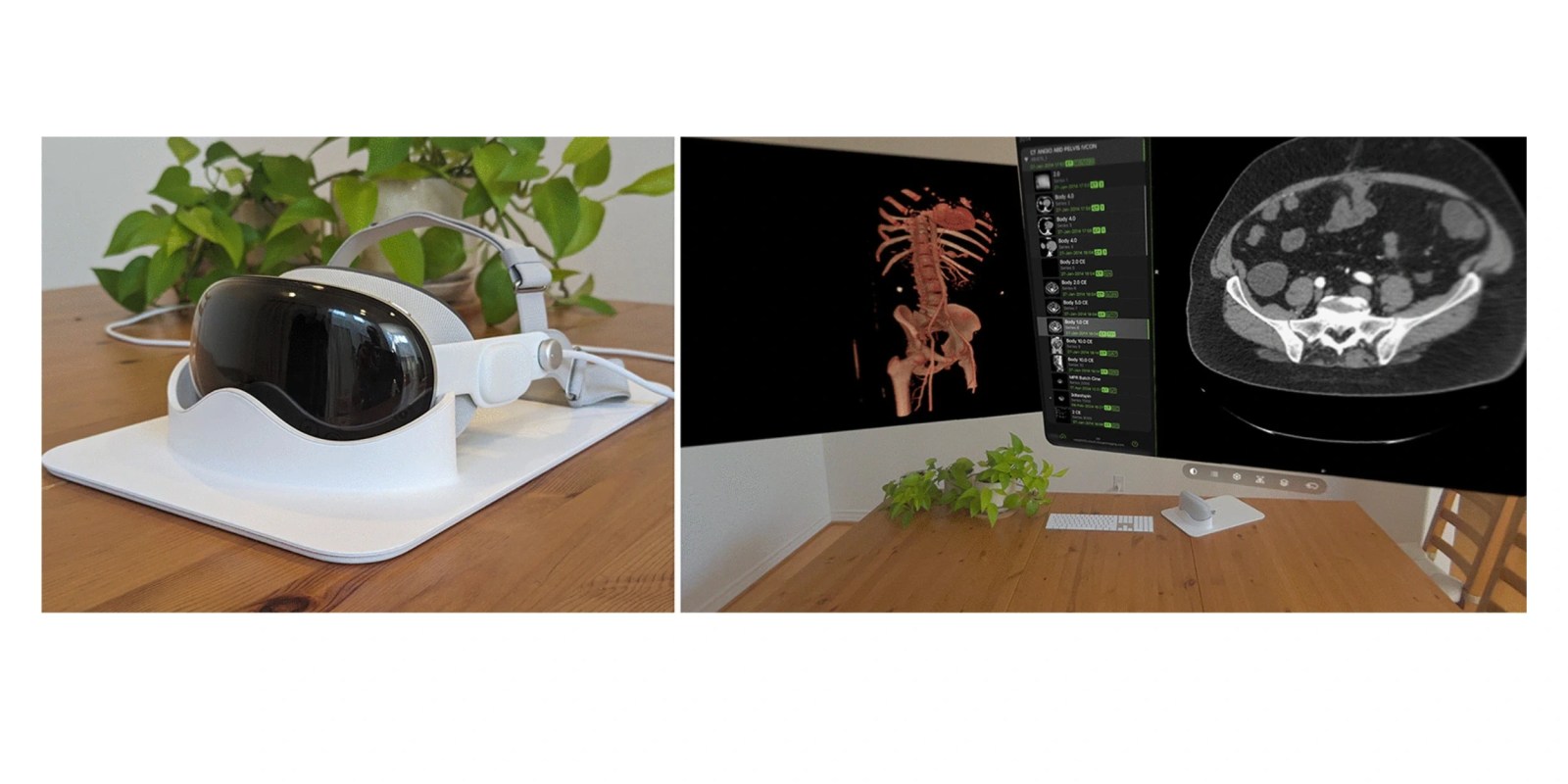
A new study published this week by researchers at the University of California, San Diego highlights how Apple Vision Pro can be used in healthcare settings. In particular, this study sought to compare diagnostic performance when using Apple Vision Pro versus using a desktop.
Researchers also touted the “new opportunities for 3D virtualization” and ergonomics offered by Apple Vision Pro.
In the study, radiologists were equipped with Apple Vision Pro units tasked with using the Visage Ease VP app to review 100 scans CT to detect diverticulitis. Performance was then compared against viewing the same scans on desktop. The study also surveyed radiologists on things like preference between devices and ease of use.
The results of the study reveal “no significant difference” in performance between radiologists using Apple Vision Pro versus a desktop.
Given the importance of CT within radiology, it is important to address whether its highest-resolution features can be visualized on imaging displays such as those of next-generation VR/AR headsets. This pilot study found no significant difference in the pooled diagnostic performance for diverticulitis between radiologists using a headset versus a desktop, and radiologists reported an overall good user experience with the headset. These results suggest that the display of this headset may suffice for visualization of such features.
Additionally, the study found that Apple Vision Pro opens the door for new opportunities in 3D visualization and radiology:
In addition, the headset offers new opportunities for 3D visualization through its immersive display and new possibilities for ergonomics through the eye and hand tracking of its user interface. For these reasons, next-generation VR/AR headsets are promising for many applications throughout radiology.
Researchers in the study also pointed to other investigations of using VR products for medical imaging:
These showed promising diagnostic performance of a headset for pulmonary nodules, favorable user experiences with a virtual reading room for presurgical planning, and many other potential applications such as intraoperative guidance, where augmented reality may become essential. Eye tracking has been investigated extensively in radiology, for studying search patterns and accelerating image annotation. These utilized desktop-based devices, but headset-based devices may facilitate eye tracking in additional applications.
You can read the full study in the Journal of Imaging Informatics in Medicine.
More on Apple Vision Pro in healthcare:
FTC: We use income earning auto affiliate links. More.




